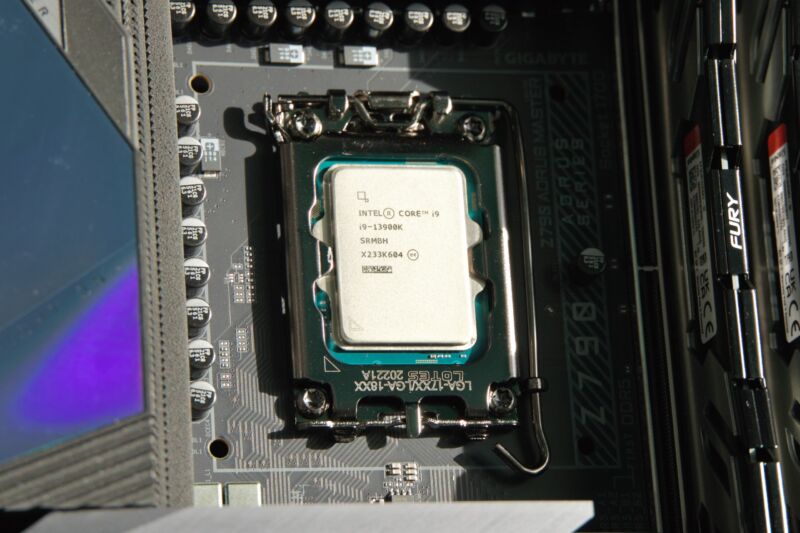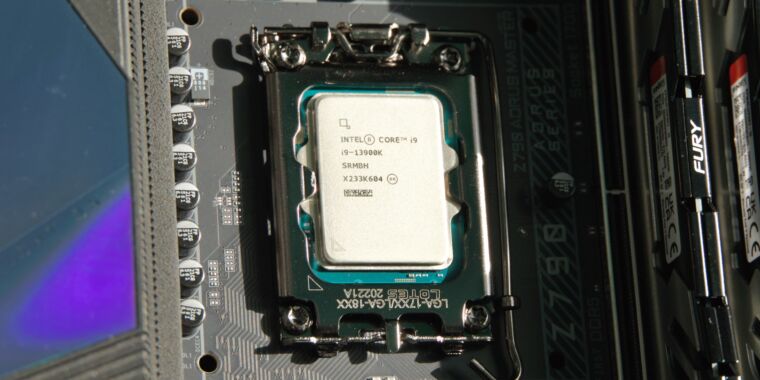
Andrew Cunningham
If you own a recent high-end Intel desktop CPU and you’ve been running into weird game crashes lately, you’re not alone.
Scattered reports from Core i9-13900K and i9-14900K users over the last couple of months have pointed to processor power usage as a possible source of crashes even in relatively undemanding games like Fortnite. Games like Hogwarts Legacy, Remnant 2, Alan Wake 2, Horizon: Zero Dawn, The Last of Us Part 1, and Outpost: Infinity Siege have also reportedly been affected; the problem primarily seems to affect titles made with Epic’s Unreal Engine. Intel said in a statement to ZDNet Korea (via The Verge) that it’s looking into the problems, escalating it from an “isolated issue” to something that may be more widespread and could require a more systemic fix.
Related CPUs like the i9-13900KF, i9-14900KF, i9-13900KS, and i9-14900KS may be affected, too, since they’re all the same basic silicon. Some user reports have also indicated that the i7-13700K and i7-14700K series may also be affected.
“Intel is aware of reports regarding Intel Core 13th and 14th Gen unlocked desktop processors experiencing issues with certain workloads,” an Intel spokesperson told Ars. “We’re engaged with our partners and are conducting analysis of the reported issues.”
While Intel hasn’t indicated what it thinks could be causing the issue, support documents from Epic Games and other developers have suggested that the processors’ power settings are to blame, recommending that users change their BIOS settings or manually restrict their processors’ speed with tools like Intel’s Extreme Tuning Utility (XTU). Most enthusiast motherboards will set the power limits on Intel’s processors to be essentially infinite, squeezing out a bit more performance (especially for i7 and i9 chips) at the expense of increased power use and heat.
Epic suggests using a BIOS power setting called “Intel Fail Safe” on Asus, MSI, and Gigabyte motherboards—its name makes it sound like some kind of low-power safe mode, but it’s most likely just setting the processors’ power limits to Intel’s specified defaults. This could result in somewhat reduced performance, particularly when all CPU cores are active at the same time. But we and other reviewers have seen sharply diminishing returns when letting these chips use more power. This can even be a problem with Intel’s stock settings—the recently announced i9-14900KS can use as much as 31 percent more power than the standard i9-14900K while delivering just 1 or 2 percent faster performance.
If power limits are to blame, the good news is that users can adjust these in the short term and that motherboard makers could fix the problem in the long run by tweaking their default settings in future BIOS updates.
Updated April 9, 2024, at 2:12 pm to add Intel spokesperson statement.


















